What is Interventional Pain?
Interventional pain management is an approach to relieving acute and chronic pain. It uses a combination of treatments to achieve optimal results for patients.
Understanding Interventional Pain
Using interventional pain management techniques, the team at Pacific Sports and Spine addresses the causes of your pain rather than relying on powerful and potentially addictive opioid medications.
While medication does have its place, painkillers that mask the problem don’t offer a long-term solution. However, interventional pain management addresses the root cause of your pain.
In addition to their extensive experience in interventional pain management, the team at Pacific Sports and Spine plays a key role in cutting-edge clinical trials, helping to develop new and better treatments.

What Conditions Can Benefit from Interventional Pain Management?
Whether it’s chronic back pain, nerve-related discomfort, or musculoskeletal disorders, interventional pain management offers targeted and minimally invasive solutions to alleviate pain and improve quality of life.
Common examples include:
- Osteoarthritis
- Bursitis and Tendinitis
- Degenerative disc disease
- Facet joint syndrome
- Spinal stenosis
- Herniated discs
- Sciatica
- Headaches and migraine
- Sports and musculoskeletal injuries
- Neuropathic pain and peripheral neuropathy
Neuropathic pain results from nerve damage or dysfunction, which may be a complication of diseases like diabetes (which causes diabetic neuropathy) or shingles (which causes post-herpetic neuralgia). Neuropathic pain can also develop for no identifiable reason.
What does Interventional Pain Management Involve?
There are numerous treatments that the interventional pain management experts at Pacific Sports & Spine can use to relieve your symptoms. These include:
Steroid Injections
Spinal and joint injections most often use a combination of local anesthetic and steroid medication. The anesthetic temporarily numbs the pain in your back or joints, while the steroids reduce inflammation and offer longer-term relief.
Possibilities include facet joint injections, thoracic epidural steroid injections, medial branch blocks, celiac plexus blocks, lumbar sympathetic blocks, lumbar transforaminal epidural steroid injections, and piriformis injections.
Regenerative Medicine
Injections of healing cells that occur naturally in your body are an exciting development in interventional pain management. Regenerative medicine techniques at Pacific Sports and Spine include mesenchymal stem cell therapy and platelet-rich plasma (PRP) therapy.
Percutanous Tenotomy (Tenex)
Pacific Sports and Spine uses advanced procedures such as percutaneous tenotomy to treat achilles tendinitis, tennis elbow, patellar tendinitis, rotator cuff tendinitis and other common musculoskeletal and tendon disorders.
Neuromodulation and Radiofrequency Ablation
Neuromodulation involves having a spinal cord or peripheral nerve or dorsal root ganglion stimulator implant that alters the signals going from your spine to your brain. Radiofrequency ablation uses radio wave energy to destroy pain nerves in your spine and joints.
Minimally Invasive Procedures
Pacific Sports and Spine uses advanced procedures such as vertebroplasty and kyphoplasty for vertebral compression fractures, Vertiflex™ Indirect Decompression System for lumbar spinal stenosis, the Intracept® Procedure for chronic low back pain, and the LinQ™ system for sacroiliac joint fusion and Aurora Spine Zip for minimally invasive spinal fusion
Find out how you could benefit from interventional pain management by contacting Pacific Sports and Spine. Call or book an appointment online today.
